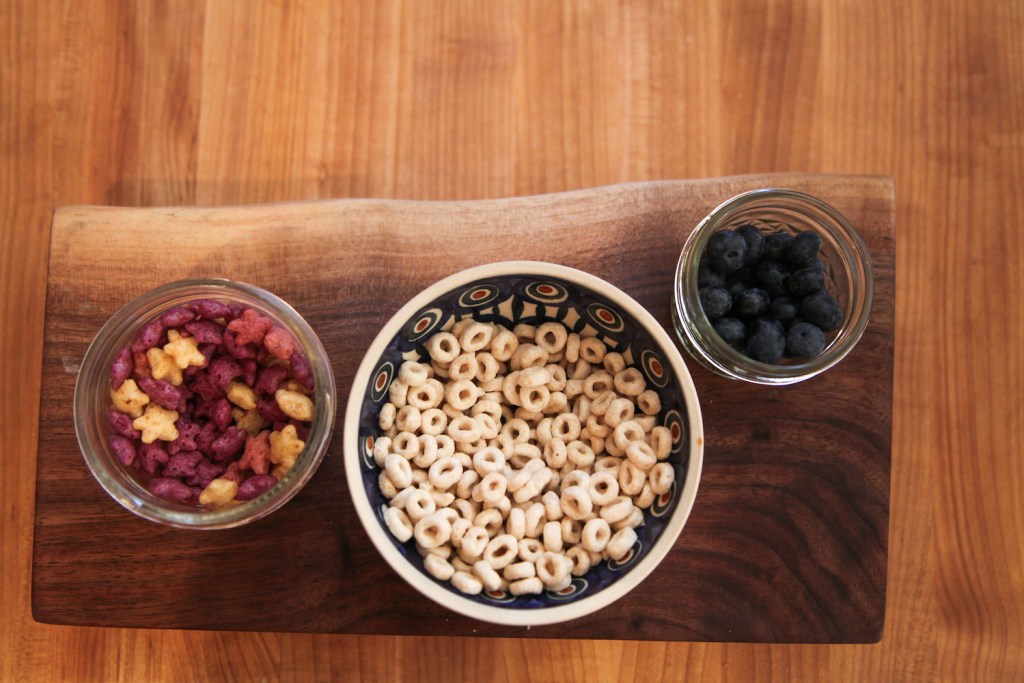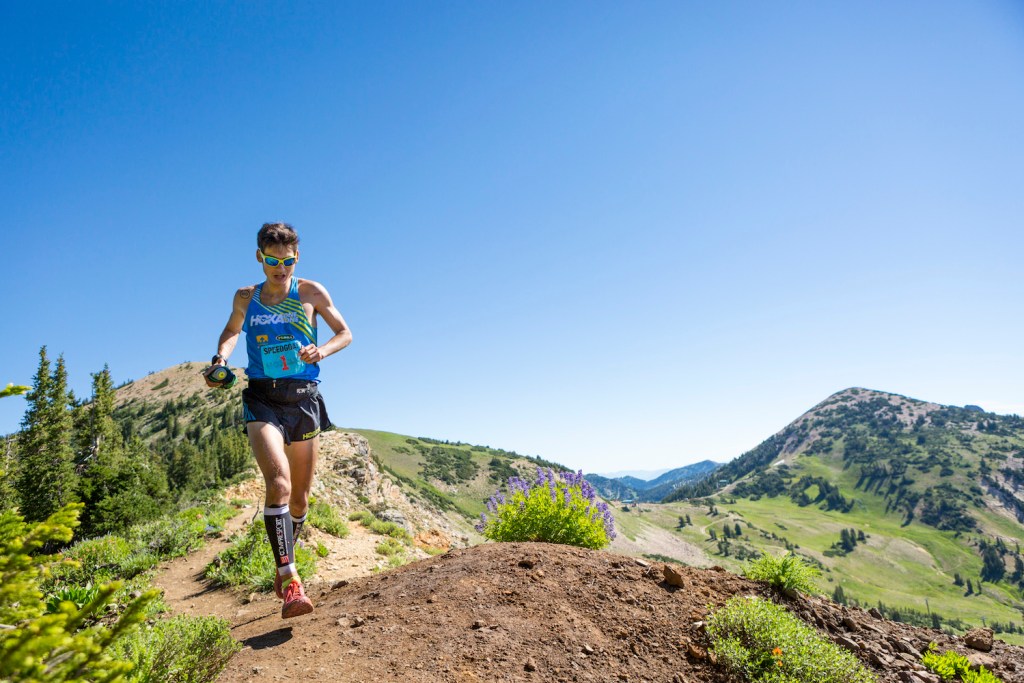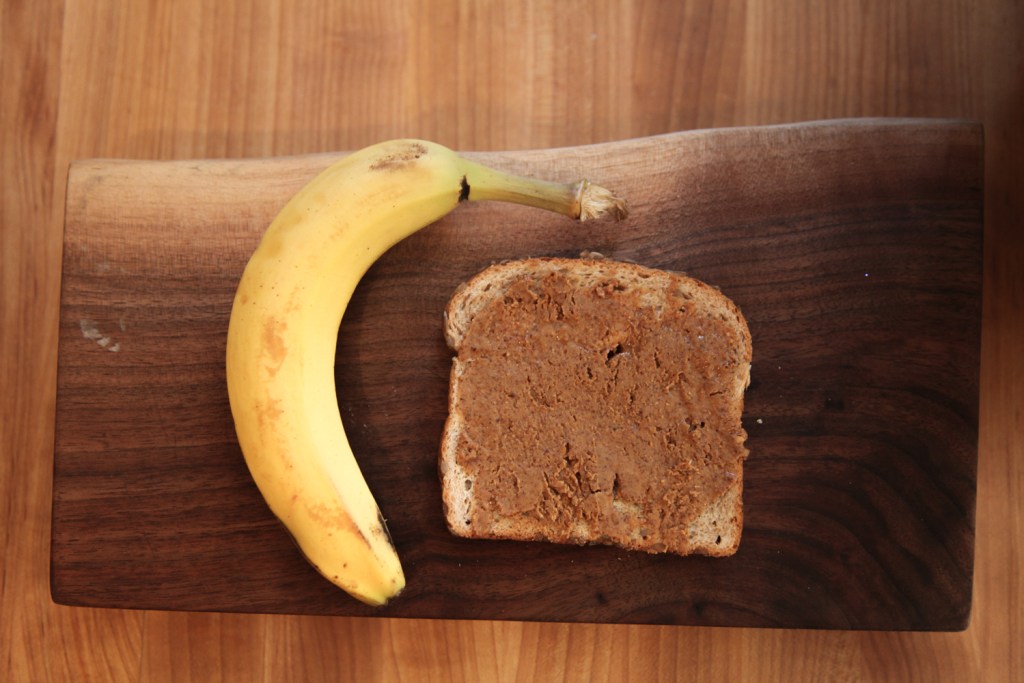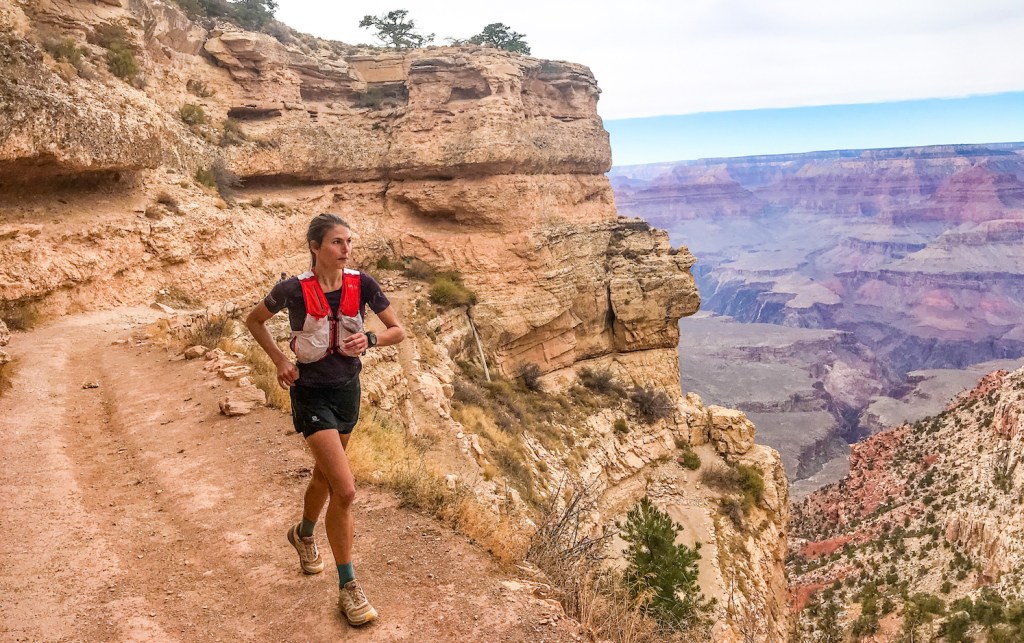You’ve logged the miles. Done the training. Now it’s race day. One big question remains: What should you eat before you run? Chances are, you should eat whatever you usually eat—now is not the time to introduce something new. For some insight, we called up a handful of elite trail runners to see what they eat for breakfast—what fuels them through mile after mile on both training and race days. Then we asked sports nutritionist, writer and runner Matt Fitzgerald, author of “The Endurance Diet: Discover the 5 Core Habits of the World’s Greatest Athletes to Look, Feel, and Perform Better,” for his take.
Jim Walmsley
Age: 27
Where He Lives: Flagstaff, Arizona
Career Highlights: Named Ultrarunner of the Year in 2016 and 2017 by Ultrarunning magazine, Jim Walmsley has won 15 career ultramarathons and set 16 trail course records, including a then fastest known time (FKT) on the Grand Canyon rim-to-rim-to-rim in 2016. This June, he’ll return to run the Western States 100, which he famously didn’t finish last year while on track for a course record.
What He Eats: “I have blueberry crisp CLIF™ granola with almond milk basically every day for breakfast. It’s easy to pack and I can replicate it even abroad,” Walmsley said. “Depending on how much time I have before a run, I will make a pour-over coffee with it. I’ll have the granola and coffee if I have at least two hours before I need to start running. If I only have an hour before, I’ll just do the granola. If I have less time, I’ll just eat half a bar. I like trying to eat something so I don’t get a mid-morning run hunger.”
Expert’s Take: With its high carbohydrate content, Fitzgerald says granola can be a good breakfast choice on heavier training days. “All breakfast granolas are not equal, though,” he said. He notes that CLIF™ Energy Granola is among the better options, with whole grains and just 10 grams of added sugar. “A sprinkling of fresh berries on top would make this breakfast a little more nutritionally well-rounded,” Fitzgerald added.

Cereal for breakfast? It’s quick and easy, says Courtney Dauwalter.
Courtney Dauwalter
Age: 33
Where She Lives: Golden, Colorado
Career Highlights: In 2017, Courtney Dauwalter won the Moab 240 Mile Endurance Run, beating the second-place finisher by more than 10 hours. In 2016, she took first at Colorado’s Run Rabbit Run 100-mile race and Arizona’s Javelina Jundred 100K.
What She Eats: “I start with three to six cups of coffee, plus French vanilla creamer,” Dauwalter said. “As I’m finishing up my coffee, I usually grab a box of cereal and eat a few handfuls straight out of the box. Standard cereals in my cupboard are Cinnamon Life™, Golden Grahams™ and Cinnamon Toast Crunch™. I will head out on my run about 30 minutes after eating. Why is this my breakfast? Because I love coffee and cereal, it sits well in my stomach no matter the workout I do after eating it and it requires zero hassle or cooking.”
Expert’s Take: “I’m a big believer in making healthy fueling as easy and comfortable as you want it to be,” Fitzgerald said. “Too many athletes assume they have to radically depart from the way they grew up eating and build their new diet on exotic superfoods to optimize their nutrition. There is a place for ready-to-eat breakfast cereals in an ultrarunner’s diet. Just be sure to choose products made with no refined grains and with less than 10 grams of added sugar per serving.”
Jeff Browning
Age: 46
Where He Lives: Bend, Oregon
Career Highlights: Jeff Browning won the 2018 Antelope Island 100 in Utah and California’s 2017 Coyote Backbone 68 Mile, where he set a FKT. In 2016, he set a fastest combined time for his finish at the Western States 100 and Hardrock 100.
What He Eats: “I eat grain-free, sugar-free in my everyday diet. I typically eat two to three eggs and Bulletproof™ coffee, with MCT oil and unsalted butter,” Browning said. “On easy days or rest days, I will occasionally intermittent fast and only have coffee. On race days, my menu is two eggs cooked in coconut oil or butter, topped with avocado and a cup of Bulletproof™ coffee.”
Expert’s Take: “Jeff’s high-fat, low/no-carb breakfasts are something that I personally would encourage athletes to eat only on rest days and on designated depletion workout days, and perhaps also during brief periods when fat loss is a higher priority than fitness development,” Fitzgerald said. “There is no arguing with the success Jeff has had, but in my experience many athletes who try this approach feel lousy, experience reduced training capacity and find it restrictive and difficult to sustain.”

After pancakes, Sage Canaday logs mile after mile. (Photo Credit: Hoka One One)
Sage Canaday
Age: 32
Where He Lives: Boulder, Colorado
Career Highlights: Sage Canaday is a three-time USA Track and Field national champion in mountain, trail 100K and trail marathon. He’s a two-time champion of New Zealand’s Tarawera Ultramarathon and a three-time Speedgoat 50K champion and course record holder. In 2017, he won the Lake Sonoma 50 in California.
What He Eats: “My typical breakfast is waffles. I love pancakes too, but I usually have whole-grain frozen waffles heated up,” Canaday said. “A local company in Boulder, called Vafels™, also makes authentic vegan European style waffles that I enjoy frequently. I usually get waffles with blueberries already in them, or I like to sprinkle blueberries on top. For other toppings, I always have some peanut butter or almond butter on hand, then also add some pure maple syrup. I like to have a very large cup of coffee and a cup of water, as well.”
Expert’s Take: “Waffles and pancakes are veritable carbohydrate bombs, hence they can be a good way to fuel up for a big day of training, though I myself would skip them on recovery and rest days,” Fitzgerald said. “Too often prepared in unhealthy ways, these comfort-food breakfast choices can be quite wholesome when done the way Sage does them: Using whole grains, holding the butter and excess syrup, and topping them with fresh fruit or sugar-free nut butter.”

Dylan Bowman keeps breakfast simple: Toast with almond butter and banana.
Dylan Bowman
Age: 32
Where He Lives: Mill Valley, California
Career Highlights: Dylan Bowman is a two-time winner of the Ultra-Trail Mt. Fuji in Japan and a two-time winner of the Tarawera Ultramarathon in New Zealand. He first made a name for himself by earning third place at his first-ever ultramarathon, the Leadville 100 in 2010.
What He Eats: “I almost always train early in the morning. Usually I just have some coffee and toast before standard training outings,” Bowman said. “Depending on how I’m feeling, I’ll either have toast with almond butter and banana or avocado toast.”
Expert’s Take: Fitzgerald says a light breakfast like Dylan’s can be a fine choice for athletes training early in the morning. “Bread with a nutritionally complementary spread on top can provide enough calories to make a difference in perceived effort and performance in the run that follows and minimizes the risk for intestinal discomfort,” he said.
Krissy Moehl
Age: 40
Where She Lives: Fairhaven, Washington
Career Highlights: Veteran ultrarunner Krissy Moehl has earned 55 female wins and two outright wins in her 17-plus-year running career, including women’s wins in 2016 at Washington’s Cascade Crest 100 and California’s Quicksilver 100K.
What She Eats: “My typical breakfast is something I’ve deemed Krissy’s Concoction. Mix one-half cup plain Greek yogurt, two to three tablespoons of Flora™ Omega Sport+ and two teaspoons of maca powder. Then add a handful of fresh or dried fruit and a cup of granola,” Moehl said. “I can eat it any morning, pre-run or post-run. If I wake up late, I’ll have a piece of toast with Trail Butter™ and a sliced banana before the run and then the concoction after. Mate is my caffeine of choice, brewed in a French press.”
Expert’s Take: “I see concoctions like Krissy’s in the diets of many elite endurance athletes,” Fitzgerald said. “I give them a general thumbs-up because, although the particular combinations of foods are sometimes a little weird, they cover a lot of nutritional bases: In this case you’ve got yogurt’s probiotics, maca’s antioxidants, dried fruit’s vitamins and minerals and granola’s fiber. In a food environment where so many people are focusing on what to avoid, the highest performers, like Krissy, tend to be more focused on inclusion.”

Cat Bradley, powered by vanilla cupcakes. (Photo Credit: Niko Barraza)
Cat Bradley
Age: 26
Where She Lives: Boulder, Colorado
Career Highlights: Breakout star Cat Bradley had quite a year in 2017: She won the Western States 100 and set a Grand Canyon rim-to-rim-to-rim FKT.
What She Eats: “Some type of hot or cold cereal with nut butter. Lately, I’ve been on a Cheerio™ kick served with a generous helping of berries, almond milk and honey,” Bradley said. “I’ll heat up a serving or two of nut butter to drizzle on top. Before a race, I treat myself to a breakfast that will soften the blow of a 3am alarm clock. Before the Western States 2017, I had a giant, gourmet, chocolate-covered Rice Krispie™ treat I bought at a fudge shop in Squaw Valley. Before my Grand Canyon FKT, I had a gluten-free vanilla cupcake.”
Expert’s Take: “I like to see athletes dress up basic prepared foods like Cheerios with additions such as fresh berries and nut butter, as Cat does,” Fitzgerald said. “Unless you are allergic to milk or lactose intolerant, though, consider choosing real milk, preferably whole, instead of almond, rice or soy milk.”
